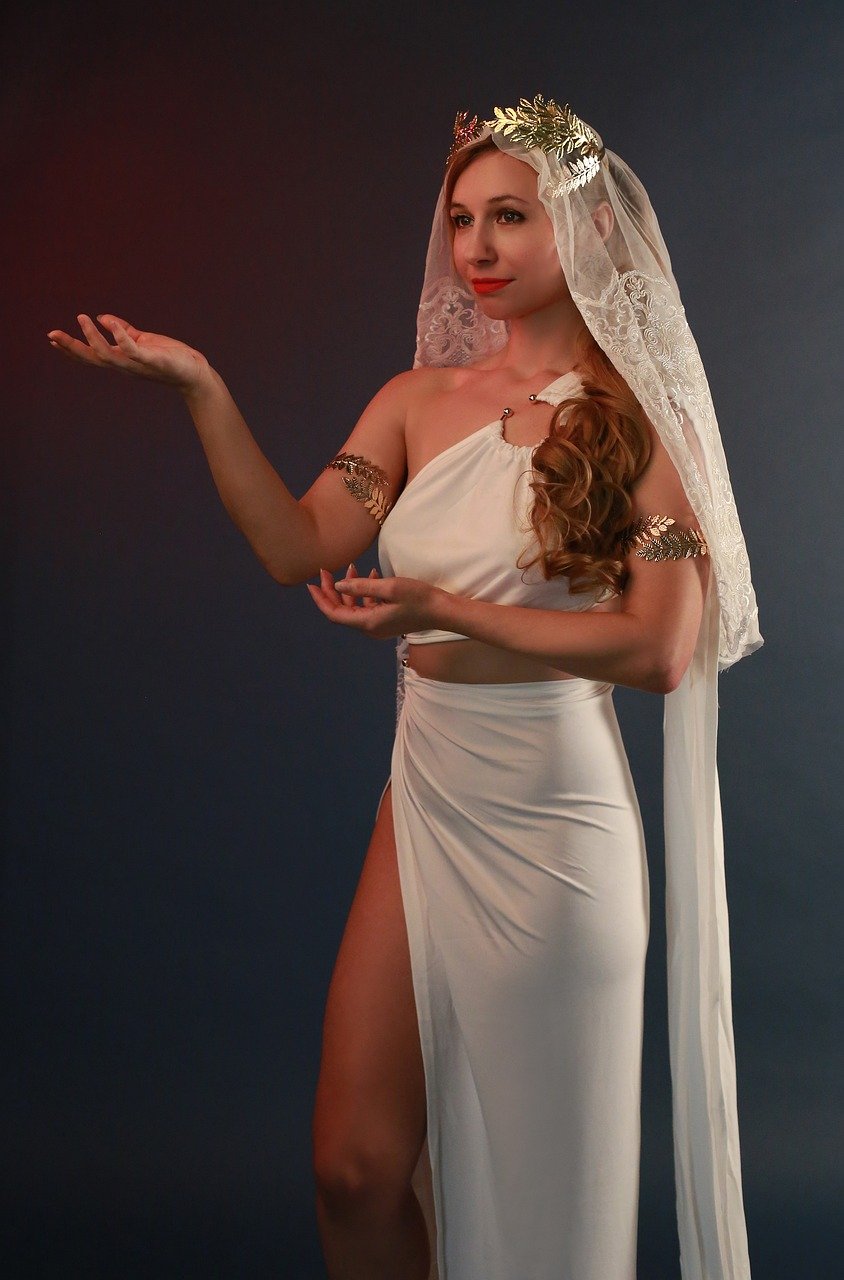In this piece, we want to highlight one of the most significant aspects associated with Christmas: the importance of Family.
Tracing back to ancient times, we encounter the Greek Goddess Hestia. The Ancient Greeks conveyed their understanding of life through myth, crafting a pantheon of deities whose humanlike traits made them believable. Similar to many religious traditions, the twelve principal gods of Greek mythology offered the community a sense of purpose and hope, with the figure of Hestia, the Goddess of the family hearth, representing the very foundation of these ideals. Continue reading to delve deeper into the essence of Hestia, what she embodies, and her unique symbolism.
Hestia in Greek Mythology
Hestia is one of the earliest deities in the Greek Pantheon, often associated with the sanctity of the home. She stands out as a figure of respect and modesty among the twelve Olympian Gods. As the daughter of Cronus and Rhea, she is the sister of major gods, including Hera, Demeter, and Zeus, embodying the principles of harmony and happiness as well as the integrity of family life. As the eldest daughter, she was often referred to as the Mother of All Gods.
The Myth of Hestia
Hestia holds the title of the Goddess of home and familial life in Greek mythology. She was celebrated with the first offering during domestic sacrifices, yet she lacked public ceremonies dedicated to her worship. In Roman culture, her counterpart is Vesta, who embodied the idea of public hearth and family unity. As the firstborn of Cronus and one of the twelve Olympian deities, her story is rooted in the defiance against Cronus, who, fearing for his throne, devoured his offspring except for Zeus. Zeus eventually liberated his siblings, enabling Hestia to support him in his conflict against the Titans, solidifying his reign. As a sign of gratitude, he honored her as the Goddess of Olympus, granting her the privilege of receiving adoration in all divine temples.
Hestia as a Virgin Goddess
Notably, Hestia is characterized by her modesty and introverted nature. A significant aspect of her identity is her aversion to marriage and romantic engagements. Many notable figures, including gods, sought her affection but were met with her firm rejections, as she steadfastly upheld her commitment to remain a virgin and devoted to protecting the sanctity of home and family life. Her unyielding principles dissuaded her from succumbing to the romantic advances of figures like Apollo and Poseidon, underscoring her dedication to her sacred purpose.
The Symbolism of Hestia
Hestia embodies virtue and righteousness among the Olympian deities, advocating for peace and harmony rather than engaging in conflict. Her name denotes “home and hearth,” signifying the essence of the household. Hestia represents the foundational connection between city-states and their mother cities, believed to be integral to establishing the first homes, where the central fireplace was dedicated to her presence. This hearth became a symbolic gathering point for families, with her eternal flame embodying the heart of the home and the center of the universe.
Further, Hestia signifies purification and renewal through fire, representing the joy of reconnecting with one’s core self and the divine. She symbolizes communal and social life, embodying harmony and unity within both individual and collective experiences.
Hestia’s Altar at Delphi: A Common Home
Hestia’s altar in Delphi served as a unifying symbol for the Greeks, representing a “Common Hearth.” The sacred fire that burned there, never extinguished, was significant to the Greeks as a depiction of a unified home. This altar was a region marked by reverence, considered the eternal fire that signifies the origin of life.
Our Sacred Hearth
In contemporary times marked by uncertainty, the love and support from our families are invaluable. Family, whether by blood or choice, provides a sense of stability and encouragement through life’s journey. It’s essential to maintain connections with both our earthly relations and our inner selves, ensuring that the essence of our ‘sacred Hestia’ remains alive within us. This nurturing of our spirit forms the foundation of our inner home and sacred fire.
Wishing you a holiday season abundant with love, gratitude, and the spirit of Hestia!



